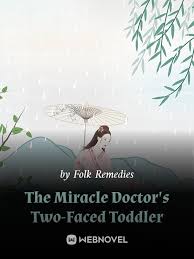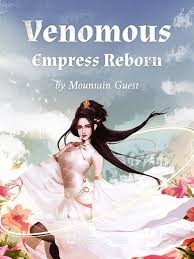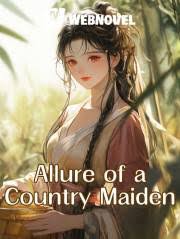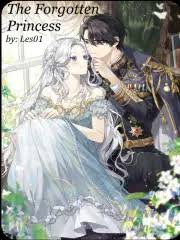The Story in 3 Sentences
A modern veterinarian is struck by a flower pot and wakes up in the body of Yu Wan, a destitute village girl burdened with a sick mother and a young brother, forcing her to use her medical knowledge just to survive .
Her life takes a sharp turn when a powerful, enigmatic prince thrusts three identical toddlers into her arms, declaring them hers, pulling her from rural obscurity into the treacherous heart of imperial politics and hidden identities .
She navigates court intrigue, uncovers deep personal connections to the prince and the empire’s elite, and ultimately fights to protect her newfound family, transforming from a struggling peasant into a formidable force who reshapes her own destiny .
Why It Stands Out
1. From Dirt Floors to Dragon Thrones: A Survival Epic
The novel masterfully blends gritty, relatable survival in the early chapters—scavenging for food, healing a frail mother, and fending off village bullies—with the high-stakes glamour and danger of the imperial court, creating a journey that feels both grounded and grand. Her initial struggle to simply feed her family makes her later triumphs profoundly satisfying.
2. The Prince and the Pint-Sized Puzzles: Romance Wrapped in Mystery
The central romance isn’t just about attraction; it’s a complex puzzle box. The prince’s abrupt claim of motherhood for Yu Wan, introducing the three mysterious toddlers, sets up an irresistible, slow-burn mystery that fuels their relationship. Their dynamic, oscillating between wary allies and reluctant partners, is charged with unspoken history and destiny, making every interaction crackle with tension and potential .
3. Flawed, Fierce, and Fundamentally Human: A Protagonist Who Grows
Yu Wan is celebrated for being refreshingly flawed, avoiding the overpowered, flawless trope common in the genre . She’s resourceful and kind but makes mistakes, feels fear, and grapples with self-doubt, especially early on as she adapts to her new life and medical responsibilities . Her emotional core and gradual, believable growth from a lost transmigrator to a confident matriarch and healer make her journey deeply compelling .
Characters That Leave a Mark
There’s Zhao Heng – the village scholar who represents Yu Wan’s discarded past, a figure of youthful infatuation whose betrayal or abandonment becomes the catalyst for her complete break from her old, simple life and her embrace of a far more complex future .
You’ll meet Helian Sheng, who was once the prince’s study companion and a figure of imperial favor, his fall from grace and complex history with the court providing a crucial backdrop that hints at the deep, often dangerous, connections binding the characters together .
And Yu Song? He’s the one who is Yu Wan’s younger brother in her new life, the vulnerable child she is fiercely determined to protect and raise, his presence a constant reminder of her responsibilities and the human stakes of her struggle for survival and prosperity .
The Flaws Fans Debate
Some readers feel the protagonist’s medical skills, while central to her identity as the “Miracle Doctor,” don’t show enough consistent, dramatic improvement, making her victories sometimes feel unearned or reliant on plot convenience rather than hard-won expertise .
The pacing, particularly in the middle sections as the story shifts from village life to intricate court politics, can feel uneven to some, with certain subplots or character arcs introduced but not fully resolved or given adequate screen time before moving on .
A segment of the audience finds the initial romance setup, particularly the prince’s forceful claim over Yu Wan and the children, to be overly reliant on familiar, potentially problematic tropes that take too long to evolve into a relationship based on mutual respect and understanding.
Must-Experience Arcs
Ch. 1–50: Roots in the Mud – Survival and Scandal Yu Wan wakes in poverty, uses her veterinary knowledge to heal humans and animals, secures her family’s basic needs, and decisively severs ties with her feckless fiancé Zhao Heng, establishing her resilience and setting the stage for her departure from village life .
Ch. 500–700: Whispers in the Palace – Court Intrigue and Hidden Ties Navigating the imperial court, Yu Wan faces the Empress’s suspicion and political machinations while uncovering fragments of her own mysterious past and the true nature of her connection to the prince and the three toddlers, turning her personal life into a high-stakes political game .
Ch. 1200–1266: The Crown and the Cradle – Destiny Fulfilled The final chapters bring all threads to a head: Helian Sheng leads armies, the Ninth Princess’s marriage signals shifting alliances, and Yu Wan confronts her ultimate destiny, securing her family’s future and finding resolution for the central mysteries that have driven the entire narrative .
Killer Quotes
“As long as I’m alive, Su…”
“Your Grace, we don’t know each other well!”
“Greet your mother.”
Cultural Impact
The novel boasts a massive readership, with millions of users reportedly having read the story, indicating its significant popularity within the web novel community .
It is frequently praised in reader reviews for subverting the typical overpowered protagonist trope, carving out a niche for readers seeking a more emotionally nuanced and realistically flawed heroine .
The central mystery of the “two-faced toddler” and the prince’s declaration have become iconic, often referenced in fan discussions as the hook that instantly draws readers into the story’s unique blend of domestic drama and imperial fantasy .
Final Verdict
Start Here If You Want:
A heroine whose strength is forged in hardship, not granted by birthright.
A romance that is deeply intertwined with mystery, political intrigue, and the challenge of building a family against all odds.
A sweeping journey from the humblest beginnings to the highest echelons of power, filled with satisfying payoffs and emotional depth.
Study If You Love:
Exploring narratives of female resilience and agency within historical or pseudo-historical patriarchal structures.
The intricate weaving of personal identity, forgotten pasts, and found family as core thematic drivers.
The subversion of common xianxia and romance tropes, offering a protagonist whose power lies in adaptability, compassion, and grit rather than martial prowess or divine favor.
Avoid If You Prefer:
Stories with a consistently overpowered, flawless protagonist who faces no real internal or external challenges.
Fast-paced, action-driven plots with minimal focus on domestic life, child-rearing, or slow-burn romantic development.
Narratives that avoid any potentially problematic or trope-heavy romantic setups, even if they evolve significantly over time.





